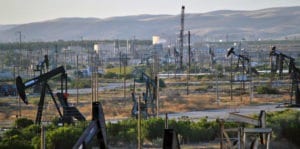The problem of fraud within the petroleum industry is a huge one, at least for those expecting accurate royalty payments. Unfortunately, there are many cases when the petroleum companies miscalculate the value or attempt to avoid paying royalties altogether.
Fraud within the petroleum industry involves several different actions. Some of the most common types of oil and gas fraud include:

When someone agrees to become a whistleblower and expose instances of gas and oil fraud (energy fraud), it helps protect the federal government’s second largest source of income. The income the government derives from the gas and oil industry is second only to income taxes, and is the result of natural resources that are mined on land that is leased from the federal government, the Outer Continental Shelf, or from Native American leases. Users owe royalties to the government whenever they use and explore these natural resources.
The Department of Interior collected over $9 billion in royalties in 2007 from various oil and natural gas leases. In spite of changes to the government entities with the responsibility of collecting royalties, there are still many cases where the big oil companies fail to pay the total amount of royalties they owe.
The False Claims Act (FCA) allows individuals who have information about fraudulent activity against a government program to take action and receive an award for reporting the fraud. The whistleblower and his/her attorney files a lawsuit on behalf of the government, and shares in any recovery the government receives. It is highly recommended that potential whistleblowers engage the services of an experienced whistleblower attorney before making any claims under the False Claims Act.
Mobil Natural Gas (and their affiliates) agreed to make payment of $32.2 million to the United States in resolution of various claims filed under of the False Claims Act. These claims stemmed from allegations they failed to fully pay royalties they owed on natural gas they produced as part of federal and American Indian leases. The Mobile companies were accused of underreporting the value of natural gas from leases from March 1, 1988 through November 30, 1999, and as a result, paid less in royalties than it actually owed to the United States and various tribes of American Indians.
The settlement with Mobil arose following a lawsuit when a private citizen filed a lawsuit on behalf of the U.S., which is allowed under the whistleblower provisions of the False Claims Act. This also allows the whistleblower to share in the financial recovery.
If you feel that you have information regarding energy fraud, and would like to discuss your legal options (confidentially and for no cost), contact the Dallas whistleblower attorneys at Rasansky Law Firm today. We can be reached 24 hours a day by phone at (214) 651-6100, or via email using the contact form found on this page.
The attorneys at Rasansky Law Firm are happy to speak to you about your potential case free of charge. If we can help with your claim, we'll do so for no out-of-pocket cost to you. Call us 24/7 at (214) 651-6100.
Get A Free Consultation
Practice Areas
2525 McKinnon Street #550 Dallas, Texas 75201
Phone: (214) 651-6100

Over 30+ Years Of Personal Injury Experience
Top-Rated and Award-Winning Personal Injury Lawyers
Attorneys Available to Discuss Your Case Now
No Fee Unless You Win
Free Confidential Consultation.
Fill out the form below to receive a free and confidential initial consultation with an experienced personal injury lawyer.